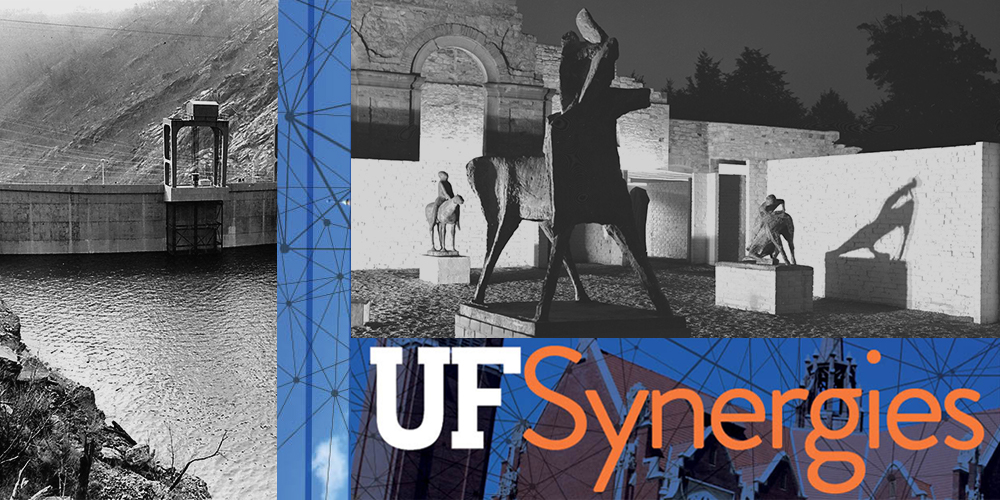
- This event has passed.
UF Synergies: Postwar Revolution and Reconstruction
November 4, 2019 @ 4:00 pm - 5:00 pm
Free
The UF Synergies series features informal talks by the Center for the Humanities and the Public Sphere’s Rothman Faculty Summer Fellows, Tedder Doctoral Fellows, and Rothman Doctoral Fellows. Fellows will speak for 20 minutes in length about their funded work, leaving ample time for questions and discussion. Talks are paired across disciplinary boundaries to stimulate discussions about threads and connections across research areas and allow for synergies of ideas to emerge in interdisciplinary conversations.
Clemens Ottenhausen (Art+Art History) “Documenta 1955: Museums, Exhibitions, and Cultural Politics in Postwar Germany”
Clemens Ottenhausen’s presentation analyzes the first Documenta in the context of an internationally operating network of politicians, museum curators, and activists. The inaugural exhibit connected numerous cultural institutions in West Germany through the communication channels of early postwar diplomacy. Since its 1955 inception in Kassel, Germany, Documenta has become one of the world’s most prolific periodic exhibitions of modern and contemporary art. Considering the first postwar decade’s intricate politics, he argues that Documenta was embedded in a series of major endeavors implemented by the same enterprising cultural and curatorial avant-garde. The innovative group seized the opportunities during this specific political climate that provided fertile ground for artistic visions.
Madison Cates (History) “A Local and National Treasure: Progress, Poverty, and Place in the Fight to Save the New River, 1962-1976”
Madison Cates focuses on the Appalachian Power Company (APCO), which in 1962 announced plans for the Blue Ridge Project, which would build a series of hydroelectric dams along the New River, stretching across miles of North Carolina, Virginia, and West Virginia. For much of the next two decades, local, state, and national factions locked horns over the New River’s fate. Ultimately, the dam project failed. Using this controversy as a window into the transformation of rural communities in the post-1945 South, his talk illustrates the limits and possibilities of environmentalism as a viable, regional force. By highlighting the New River Valley’s white, agrarian heritage as a unique place in an urbanizing and industrializing South, local anti-dam forces brought conservative figureheads like Senator Jesse Helms together with national environmental groups. This quixotic campaign speaks to the largely unacknowledged ways that rural areas became objects of cultural rehabilitation even after decades of farm losses and metropolitan sprawl.